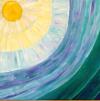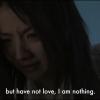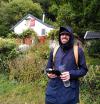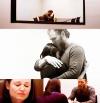Watch
Where Is the Friend's Home?

Where Is the Friend's Home?
1987
Drama
1h 23m
An 8 year old boy must return his friend's notebook he took by mistake, lest his friend be punished by expulsion from school. (imdb)
Directed by:
Written by:
Franchise:
Genre:
AKAs:
Khane-ye doust kodjast?, Where Is The Friend's House?
Country:
Language:
Your probable score
?
Where Is the Friend's Home?
1987
Drama
1h 23m
Your probable score
Avg Percentile 74.92% from 985 total ratings
Ratings & Reviews
(984)
Compact view
Compact view
Show
Sort
Rated 16 Dec 2010
90
96th
Perhaps the best children's movie ever made. The simple story is told with warmth and humanity and clear-cut dialogue. A near masterpiece.
Rated 16 Dec 2010
Rated 25 Jan 2020
4
74th
This plain simplicity is easy and disarming. Watching this adorable boy's wide-eyed, single-minded determination to navigate the grown-up landscape, it becomes apparent that children and adults live in completely separate worlds. If Ahmed understands one thing, it's that he is doing what is right, even if the authority figures in his way can't bring themselves to comprehend or even care to begin with.
Rated 25 Jan 2020
Rated 16 Nov 2015
67
88th
In the beginning, one of the children, obviously instructed not to look at the camera, seemingly looks straight at it by accident & hurriedly glances away. With this same childlike candor & simplicity the film continues, yet not without all the stark formalism of Bresson & the grace of Kiarostami's later work. Characters repeat lines, like in a dream; we hear adults' folksy wisdom, some actually interesting & some stupid-- we're admitted into a universe of the wonder & sensitivity of a child.
Rated 16 Nov 2015
Rated 24 Apr 2021
95
99th
I consider the three films that make the Koker Trilogy' as a single body of work and so give them the same rating. This is a masterfully told story about ethics; Ahmed is ethically compelled to return the notebook to his friend - as Ahmed repeatedly exclaims "I have to take it back" - because this is how one ought to conduct themselves in such a situation. The ending of the film, surely one of the most satisfying in all of cinema, makes clear why ethical conduct is worth it.
Rated 24 Apr 2021
Rated 10 Jun 2021
95
97th
bu filmin hissettirdiklerini kelimelerle tarif edemiyorum. duygu ve düşüncelerimin tercümanı gibiydi.
Rated 10 Jun 2021
Rated 17 Mar 2009
87
87th
Kiarostami manages to extract an awful lot from a simple story. It's slow and somewhat repetitive, yet every scene brings something new to think about, and I found the young boy and his small yet large troubles incredibly compelling. That such a film can manage to be both a portrait of rural Iranian society and at the same time a universal tale of childhood is a testament to its greatness.
Rated 17 Mar 2009
Rated 04 Feb 2013
80
91st
It's a wonder that so many Iranian filmmakers can make films like this that are similar thematically -- children wandering helplessly in dismissive, authoritarian adult worlds -- yet nevertheless feel entirely distinct from one another. Unlike some of the other films in this sub-genre the lead child actor is actually kind of likeable and not completely annoying. Always a plus when child leads don't make you want to tear your hair out.
Rated 04 Feb 2013
Rated 12 Mar 2013
80
68th
As with most of Kiarostami's stuff it is a simple tale, beautifully observed told with warmth and humanity. We see the story from the kid's point of view which allows Kiarostami to frustrate us with quite how much children are ignored or taken advantage of by adults. Not quite perfect but still suitably delightful.
Rated 12 Mar 2013
Rated 17 Jul 2016
90
92nd
Kiarostami and80's/90's Iranian film in general more so than any other country or time period seem to have a real foot in what makes a story human.How their movies truly are cinema of the people and for the people.The power of Kiastromi to expose systems and comment on the functions human nature all while maintaining a gorgeous looking picture is what I think every filmmaker before and after him has tried to achieve with maybe one or two succeeding at his level.At least I still have more to see
Rated 17 Jul 2016
Rated 04 Jun 2021
100
99th
Absolutely loved it. Brilliant display of how the ethics of a child collide with the ideas of adults who do not even listen properly. A simple yet absorbing story which draws a beautiful picture of rural Iranian life at the time.
Rated 04 Jun 2021
Rated 17 Jan 2015
6
83rd
how sweet. the idea that adults should listen to children more is clearly the main thrust of the film, but as always for kiarostami, some of the best aspects are the conversations which diverge from the plot. lovely music reminiscent of [pather panchali].
Rated 17 Jan 2015
Rated 31 Oct 2018
81
65th
Kiarostami's kid-sized, neo-realist adventure movie showcases the boundless moral and empathic courage children are capable of in a world of self-absorbtion and harsh discipline. It's amazingly kind, boasts an emotive lead performance, and even when it diverges from the main plot and gets overly repetitive, it's in service of its worthwhile message of self-sacrifice for those in need. A great way to blend realist aesthetics and themes with a story fit for children.
Rated 31 Oct 2018
Rated 24 Dec 2015
84
94th
This film is like Uncut Gems, but for kids. So stressful
Rated 24 Dec 2015
Rated 30 Nov 2019
78
66th
Duty and integrity doesn't have an age limit. Kiarostami lays out a seemingly simple task but with vital life lessons. Beautifully done.
Rated 30 Nov 2019
Rated 31 Mar 2015
75
86th
The best performances from child actors come from Persian films, and this is no exception. The boy basically has one expression, but it is powerful. ps72
Rated 31 Mar 2015
Rated 05 Aug 2013
100
95th
Köyün o sıcaklığı, kışın gelmesi, köylüler ve Türk kültürüne o kadar yakınlık son olarak da harika düşünülmüş ince ayrıntılar, kiarostamiyi kazandıran eserlerin başında ve kusursuz.
Rated 05 Aug 2013
Rated 23 Jan 2020
75
69th
So many depict youth through an innocent sense of whimsy or wonder, but Kiarostami's vision is arguably closer to home for most - the indifference of adults, the frustrating pace of repeated questions, virtue at odds with societal expectations of obedience. That final shot is singularly beautiful.
Rated 23 Jan 2020
Rated 01 Jan 2009
85
75th
There's some annoying parts, but overall, this is a wonderful neo-realistic sort of thing.
Rated 01 Jan 2009
Rated 19 Feb 2024
97
95th
Beautiful, beautiful film. Flawless captures the conflict between competing demands of duty, family vs. community vs. truth to self. I have a newfound empathy for children after watching.
Rated 19 Feb 2024
Rated 05 Jul 2016
9
90th
What lisa- said.
Rated 05 Jul 2016
Rated 25 Jan 2022
98
98th
Büyüklerden çekindiği için mıy mıy konuşan, derdini anlatamayan Ahmed; Ahmed'in düşüncelerini ve hislerini umursamayan büyükler ve Ahmed'in arkadaşını cezadan kurtarmak için elinden geleni yapması. Bu coğrafyada doğup büyüyenler bu hikayenin her şeyiyle ne kadar gerçek olduğunu bilir.
Rated 25 Jan 2022
Rated 18 Jul 2016
78
58th
In its own quaint way, this is a rather sad film about children being smarter and better at problem-solving than adults because they don't adhere to arbitrary codes, but their opportunities to prove this are always quelled. The dialogue can be rambly and very reiterative which makes the miscommunication between kids and adults even sadder. Luckily there's some hope in the film's last act, which features some gorgeous melancholic nighttime imagery. Appears far more simpler than it likely is.
Rated 18 Jul 2016
Rated 01 Mar 2008
76
61st
# 483
Rated 01 Mar 2008
Rated 19 Apr 2020
80
79th
Pedagogical cinema? Followed by "Close-Up", "And Life...", and Beyond the...", Kiarostami makes a cinema of investigation. Theoria in Greek means a questioning contemplation that is a gaze. K. uses children and cars as directors and cameras respectively, to ask what essentially narrative, meaning, and frame mean. He says, the best a director can do is to accept his fate, personal and cosmological. A director can only be the shepherd of images, not a sovereign auteur. My respects Mr. neighbor.
Rated 19 Apr 2020
Rated 28 Dec 2019
75
84th
Unusually perceptive film about children and the degree to which they are capable of acting with moral agency. Kiarostami uses the 'journey' of a persistent young boy to return his friend's notework as an entry point to explore attitudes towards children in the wider Iranian society and the way adults engage with kids in an either overly disciplinary or outright dismissive fashion. It's less bold than his future works, but it's well constructed, and the night scenes are among his best work.
Rated 28 Dec 2019
Rated 13 Sep 2020
85
94th
I want to communicate with the lifelike characters desperately whenever I watch a Kiarostami film. This is no exception.
Rated 13 Sep 2020
Rated 27 Oct 2022
76
38th
*impression of an annoying tumblr person reviewing this movie* children are so important
Rated 27 Oct 2022
Rated 29 Apr 2023
80
75th
I can't remember another film where the entirety of the plot is explained in the title. This sounds like it'd be a snoozefest, it is actually a non-stop thrill ride. Okay, maybe I am overselling it just a little.
Rated 29 Apr 2023
Rated 22 Nov 2018
3
36th
Invisibility of children very well explored - completely unsentimental until ending blast - open door and world coming in from the dark onto him very good
Rated 22 Nov 2018
Rated 19 Dec 2008
75
50th
501
Rated 19 Dec 2008
Rated 28 Oct 2013
78
89th
Early Kiarostami that is very good at showing the child's universe.
Rated 28 Oct 2013
Rated 22 May 2022
93
98th
The man who makes the iron doors just ignores Ahmad, but the man who hand crafts the wooden doors takes the time to guide him to the house... this movie is very profound and beautiful
Rated 22 May 2022
Rated 02 Feb 2021
4
93rd
Pure cinema.
Rated 02 Feb 2021
Rated 22 Nov 2021
80
85th
How can a "little" film be so cute, yet so poignant? Kiarostami's beautifully planned compositions -- open shots like moving paintings, social interactions so revealing of a broken society where kids have to balance school with domestic tasks and nearly actual jobs -- serving such a tense, delicate story. Everyday poetry all over. Old door maker walking with him at night, telling he made his dad's first bed, flower inside a notebook, windy night as he does homework -- his and his friend's.
Rated 22 Nov 2021
Rated 19 May 2012
75
67th
ödev, cocuk, arkadaslik, defter, okul, ögretmen, aramak, adres sormak, kapi muhabbeti, arkadasinin defteri kendisinde kalan cocuk defeteri arkadasina götürmeye karar verir. biraz duragan, gercekci, kapi mevzusu (yenilik/dayaniklilik), kendini ifade hakkı tanınmamış bir çocuğun arkadaşının evini ararken yaşadıklarını konu edinmiş. May 19th, 2012 ilk kez Annem ve Eşimle izlemiştim. İkinci kez İki çocuğumla izledim. 16 Haziran 2021'de
Rated 19 May 2012
Rated 18 Aug 2023
86
93rd
No hyperbole here but considering topic, stakes and the placid storytelling you won’t believe me anyway: I can’t think of any other film, be it horror, thriller or action, as stress-inducing as this. Masterpiece.
Rated 18 Aug 2023
Rated 29 Oct 2013
75
85th
Has a beautifully perfunctory conclusion.
Rated 29 Oct 2013
Rated 11 Sep 2020
80
78th
Kiarostami seems to be hinting that there's less of a cultural difference between Iran and the rest of the world than there is between adults and children. In a film that seems mindlessly repetitive -- but very realistic -- a young boy single-mindedly attempts to bring a notebook to a school chum. The plot is thin, but it says quite a bit. A nice surprise to find.
Rated 11 Sep 2020
Rated 11 Dec 2020
90
91st
A tender, humane portrayal of childhood and its agonies. Beautiful acting, shooting, and storytelling.
Rated 11 Dec 2020
Rated 08 Jul 2016
97
99th
Acting, fiction, authentic life, are they truly possible? Contrivances, usually a thing frowned upon, here, because Kiarostami is so forthcoming in its usage, add dimensions and, at the same time, dissects them to reveal between them relations and components interacting with each other. The child, an actor, who, against instructions, looks into the camera (see film-poster), is shown to be a child, and in a way is living the tale hes participating in.
Rated 08 Jul 2016
Rated 24 Mar 2023
80
86th
The boy's quest is simple but it (especially the denoument) is all the more engaging because the high stakes are established so effectively in the opening scene.
Rated 24 Mar 2023
Rated 23 Feb 2023
70
30th
23.02.2023 Balıkesir. w/açoş.
Rated 23 Feb 2023
Rated 17 Jun 2022
91
89th
Ainda impressiona o quanto esse filme foi influente por todo o cinema iraniano dos anos 90, todas agruras infantis que passaram por aquela década é oriunda dessa pequena obra-prima da empatia. Na Mubi.
Rated 17 Jun 2022
Rated 12 Nov 2022
81
78th
Compelling as a minimalistic tale in which the scenes are entangled but work as separate points of thought that enrich the whole. Extra credit for a decent child lead performance and reflections on human responsibilities.
Rated 12 Nov 2022
Rated 10 Jul 2022
80
68th
Kiarostami takes a pretty simple premise and creates a rich portrait of Iranian rural life and a meditation on the importance of doing the right thing in the face of obstacles. Babek Ahmed Poor meets a series of adults who are strikingly unhelpful, making the relatively simple task of finding someone's house into a minor odyssey. He gets really rich performances out of the non-actors.
Rated 10 Jul 2022
Rated 22 Jun 2010
70
75th
Very good for a first feature film but Kiarostami is still green behind the ears, and some of his subsequent films are more mature. Dialogue is what Kiarostami excels in, and here already, the conversations are the best feature.
Rated 22 Jun 2010
Rated 14 Jan 2010
79
58th
429
Rated 14 Jan 2010
Rated 13 Nov 2022
85
85th
Such a simple story, but so well told and so effective. The frustration of being a child and not being taken seriously by (or being totally ignored by) adults comes through incredibly clearly. Capture's a child's perspective with the same level of success as other great movies like Spirit of the Beehives and Pan's Labyrinth and E.T. Understated. Understated and beautiful.
Rated 13 Nov 2022
Rated 01 Jan 2016
59
51st
Werner Herzog chose this as required viewing for his Rogue Film School scam, and I understand its appeal to him - the simple, yet atmospheric style, the borderline autistic child in a dusty world of strict, overbearing adults. One can admire the dignity in execution, but it is really just a kid running around, searching for another boy.
Rated 01 Jan 2016
Rated 21 Oct 2007
92
93rd
This is what love looks like: doing your best for your neighbor. That the adults remain completely oblivious to Ahmad's plight only underscores the point. Even the artist, who wants to help, remains powerless to actually solve the boy's problem. For a solution can come only from the boy himself.
Rated 21 Oct 2007
Rated 30 Nov 2011
77
54th
#466
Rated 30 Nov 2011
Cast & Info
Directed by:
Written by:
Franchise:
Genre:
AKAs:
Khane-ye doust kodjast?, Where Is The Friend's House?
Country:
Language:
Collections
Loading ...
Similar Titles
Loading ...
Statistics
Loading ...
Trailer
Loading ...
PSI
?















































